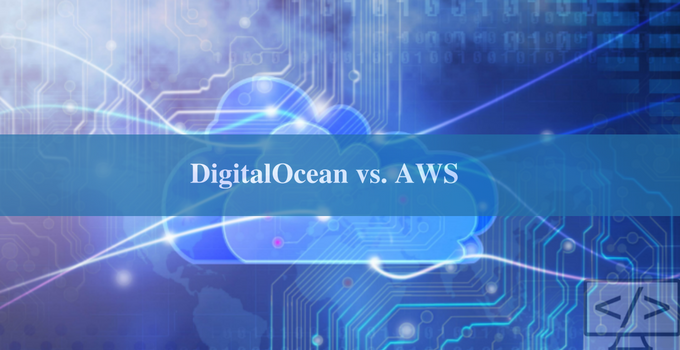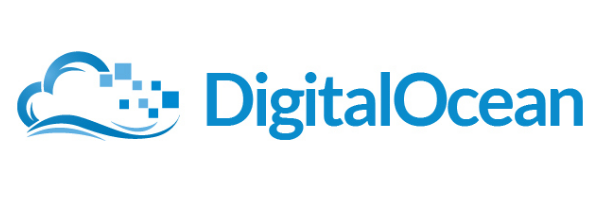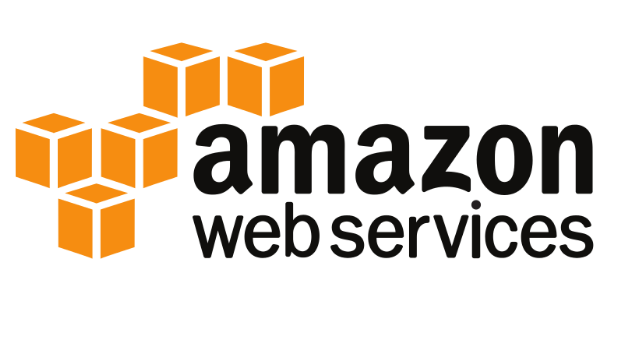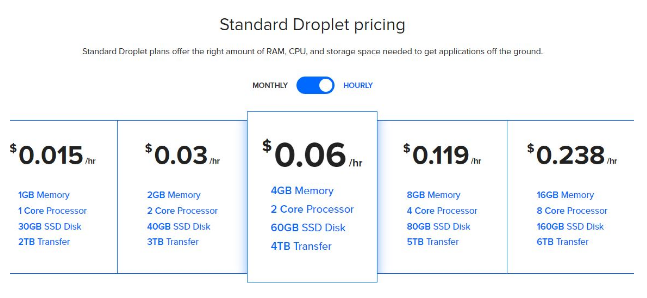
DigitalOcean vs. AWS has recently been the talk of the town. When it comes to computing services, Amazon Web Services (AWS) is a true leader, and offers diverse cloud computing solutions. DigitalOcean, on the other hand, is a new player, compared to AWS, and is aimed at developers looking for cheap cloud hosting. The rapid growth of DigitalOcean in the last few years is commendable as they managed to capture a significant market share.
Both of them come with their own advantages and disadvantages and shouldn’t be compared at all (due to a wide difference in provided solutions). But, here we are, comparing them, helping our readers to choose the best cloud service provider for their app. So, why wait? Let’s get started with the AWS and DigitalOcean comparison.
DigitalOcean Vs. AWS
Introduction
Before we get into the comparison, let’s learn more about each platform.
DigitalOcean: DigitalOcean is a cloud-computing company launched in 2011. With the aim to help developers quickly setup their development servers, their new cloud services received excellent initial reception and steadily grew. They offer servers for developers with no hosting service, which is why many inexperienced users get confused.
The end user ends up being disappointed by the DigitalOcean service. With over 9 data centers around the world, DigitalOcean provides high-quality servers at an extremely affordable price. They are also known for their explosive growth since their launch.

AWS: Amazon’s AWS> is a complete cloud-based solution and provides a broad range of cloud-computing services including PaaS and IaaS solutions. AWS is a big entity in the cloud-computing arena and easily beat every competitor in the market.
Their capacity can also be gauged by the broad range of solutions they cover, including databases, storage, EC2, etc. AWS offers the largest data centers located in nine regions around the world.

Ease of Use / Setup
When it comes to ease of use, DigitalOcean fairs well due to its simple solution. DigitalOcean provides better UI/UX experience compared to AWS. DigitalOcean’s concept of “droplets” makes it easy to handle the servers. Also, it is easy to get started with DigitalOcean, as setting up a server takes 55 seconds compared to 1 – 3 minutes in AWS.
Overall, DigitalOcean’s ease of use attributes to its simple service structure when compared to AWS. AWS, on the other hand, provides a plethora of computing solutions. Most of the solutions are enterprise level and hence, require a good knowledge of the platform and cloud computing. This makes AWS tricky to use and master.
Check out mmcfarland from Dayton, United States, deploying his JavaScript app on DigitalOcean.
Solutions
Regarding solutions, DigitalOcean just cannot stand in front of AWS (a solution in computing is defined as a set of preconfigured software aimed to deliver a specific need). DigitalOcean provides simple cloud server solution to its users. They provide highly scalable servers at an extremely affordable price.
In comparison, AWS comes with a plethora of solutions. They provide solutions for storage (Glacier and S3), databases, load balancing, networking and content delivery, PaaS configuration, etc. If you are looking for a solution that handles every aspect of cloud computing, choose AWS. Otherwise, DigitalOcean will suffice.
AWS is a mammoth when it comes to cloud-computing solutions, and only cloud computing services such as Azure, Google Cloud Platform can stand in front of it (in terms of both capacity and functionality).
Check out ac360 from Oakland, United States, as he works with AWS API.
Pricing
AWS has won every round until now. However, the tables turn when it comes to pricing. DigitalOcean offers the best pricing. The pricing is so good that anyone can get started with it. The pricing starts from $0.007/hr ($5 monthly) with a configuration of 1-Core processor, 512MB memory, 20GB SSD Disk, and 1TB transfer.
All their plans come with SSD configuration, which makes the deal more valuable. Recently, they have introduced the idea of volumes which add more storage capacity to any droplet. The volume price starts from $0.10/month per 1GB. The volumes can also be moved from one droplet to another, making it easy to manage bulk storage. More about DigitalOcean pricing here.

AWS is costly when compared to DigitalOcean. Also, it is hard to gauge AWS pricing as they have different rates for their cloud-computing solutions. You can check the pricing page here.
Performance
Performance-wise, both of them stack nicely, but it is DigitalOcean that takes the performance crown. The SSD setups, high-network speed of 1 Gbps, and faster deployment rate makes DigitalOcean a great choice for those who are looking for nothing but performance. You can check how DigitalOcean performs strongly compared to Amazon and other cloud services.
Digital Ocean was not a great option when it comes to increasing storage, but with its new “volumes” feature, it is now easy to add and move storage from one droplet to another. AWS, on the other hand, provides extensive functionality with decent performance.
Backups
Creating backups is important for the functionality of your apps. If you are running a simple blog, then DigitalOcean backups can easily suffice–they do backups every three days. For larger and more critical applications, AWS provides a better backup solution. The only drawback to AWS backup is its complex setup. You can also configure daily backups with DigitalOcean.
Support
AWS offers better support when compared to DigitalOcean. DigitalOcean being a cloud-service company, doesn’t have any livechat or phone call support. You can only contact them using a ticket system, which can easily take several hours to get answered. This kind of service can easily hamper your app performance. However, AWS support comes with advanced plans. The basic plan is free and comes with your account. But if you want special treatment, you need to get one of their advanced plans. You can select a different type of support plan, ranging from Developer support to Enterprise support. You can get a good idea of AWS support plans by checking their support plan page.
Let’s take a look at AWS Vs. DigitalOcean in a tabular format.
| AWS | DigitalOcean | |
| Ease of Setup | Not easy compared to DigitalOcean. Takes 1 – 3 minutes to deploy a cloud server. | Very easy to setup. Takes 55 seconds to deploy a droplet. |
| Pricing | Costly. | The cheapest in the market. |
| Support | Good support. Offers support plans for different needs. | Support only through the ticket system. Takes several hours to respond. |
| Performance | Good performance. | Beats AWS’ performance. |
| Services | A wide range of cloud-computing solutions. | Offers cloud servers with scalable solution. |
Table 1: AWS vs. DigitalOcean
Conclusion
When DigitalOcean started, it never meant to compete with Amazon’s AWS when compared from the angle of features supported by each platform. Its aim is to deliver services to developers who want high-performance servers without spending a fortune. Amazon’s AWS is inclined more towards providing a complete cloud-based solution.
So, the choice of service depends on what you want and how much you are willing to pay for it. DigitalOcean is great if you are on a budget. Choose AWS if money is not an issue. In conclusion, Amazon provides more value but at a higher price, whereas DigitalOcean offers excellent high-performance instances for a cheap price.
Have something interesting to add to the comparison? Comment below and let us know!







